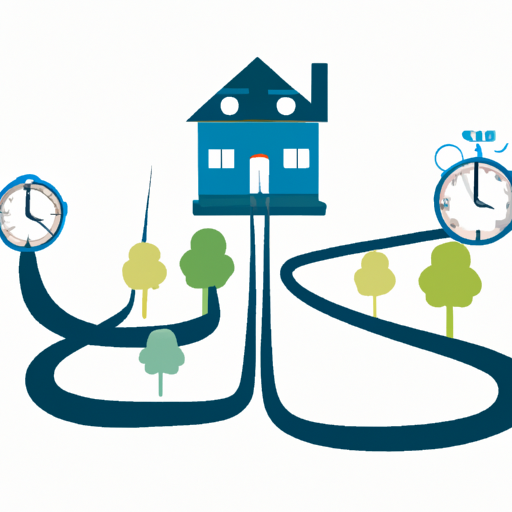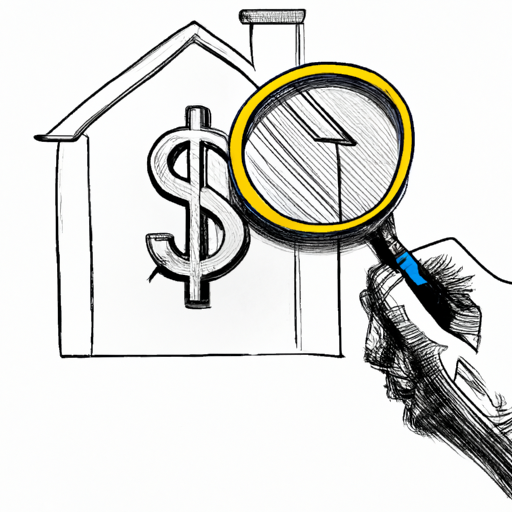This article discusses factors that can affect the closing process when buying a home, including financing, contingencies, and home appraisal. It includes tips for speeding up timelines, such as getting pre-approved for a mortgage and organizing paperwork. It also mentions potential financing and home appraisal issues that could cause delays.
Buying a home is an exciting and important event, but it can also be a process full of uncertainty and questions. One of the most common questions home buyers ask is, “How long does it take to close on a house?” The answer to this question can vary depending on several factors, and understanding the terms is critical to a smooth and successful closing. In this article, we’ll explore the typical length of time it takes to close on a home, the factors that can affect the process, and provide tips for making the closing process easier. In addition, we will address common issues that may arise during the closing process and offer solutions to overcome delays. Whether you are a first-time home buyer or a seasoned real estate investor, this article will provide you with valuable insight and information to guide you through the closing process.
- 1. “Understanding the Timeline: How Long Does It Typically Take to Close on a Home?”
- 2. “Factors affecting the closing process: what can accelerate or delay it?”
- 3. “Step-by-step navigation: breakdown of the closing process from offer acceptance to closing day”
- 4. “Tips for optimizing the closing process: how to speed up deadlines”
- 5. “Common Challenges and Solutions: Overcoming Home Closing Delays”
1. “Understanding the Timeline: How Long Does It Typically Take to Close on a Home?”

Understanding the Timeline: How long does it usually take to close on a home?
Closing on a home is the final step in the home buying process. This is the moment when all the documents are signed, funds are transferred, and ownership officially passes from the seller to the buyer. However, home closing times can vary based on several factors.
One of the main factors affecting closing times is the type of financing. If the buyer is paying cash, the closing process can be completed within days or weeks. This is because cash transactions do not require the involvement of lenders or a lengthy mortgage approval process. On the other hand, if the buyer obtains a mortgage, the closing process can take an average of 30 to 45 days.
Another factor that affects closing times is the complexity of the transaction. If there are any unforeseen circumstances or conditions that need to be met before closing, such as repairs or inspections, this may be extended
2. “Factors affecting the closing process: what can accelerate or delay it?”

Closing the home buying process can be a long and complicated process. While the average time to close on a home is usually around 30-45 days, there are several factors that can speed up or delay the process.
One of the most important factors that can affect the closing process is the mortgage approval process. If the buyer is already pre-approved for a mortgage, this can greatly speed up the closing process. However, if the buyer has not yet secured financing or if there are any issues with their credit or financial documentation, this may cause delays in getting the mortgage approved.
Another factor that can affect the closing process is the home’s appraisal. Typically, a lender requires an appraisal to determine the fair market value of the property. If the appraisal is lower than the agreed purchase price, this may lead to a review or even cancellation of the deal. This may result in delays in closing while the parties negotiate a new purchase price or seek alternative financing options.
3. “Step-by-step navigation: breakdown of the closing process from offer acceptance to closing day”

Step by Step Navigation: A breakdown of the closing process from offer acceptance to closing day
Once your home offer has been accepted, there are several steps you must take before the closing date. This part of the home buying process is known as the closing process, and it usually takes several weeks. Let’s take a closer look at the different stages of navigating the closing process.
1. Inspection of the house: after accepting the offer, it is advisable to conduct a thorough inspection of the house. This step allows you to identify any potential problems with the property and negotiate repairs or price reductions if necessary. Depending on the availability of inspectors and the complexity of the inspection, this process usually takes a few days to a week.
2. Evaluation and financing. The next step is an appraisal of the property to determine its market value. This is usually required by the lender to ensure that the loan amount matches the value of the property.
4. “Tips for optimizing the closing process: how to speed up deadlines”

Closing on a home can be an exciting but stressful process. From the time the offer is accepted to the actual closing date, there are many steps that can affect the timeline. However, there are a few tips that can help make the closing process easier and faster.
1. Get pre-approved for a mortgage: Before you start looking for a home, it is very important to get pre-approved for a mortgage. This step will not only help you determine your budget, but it will also show sellers that you are a serious buyer. With a pre-approval in hand, you can move quickly when you find the home you want, potentially speeding up the closing process.
2. Organize Your Documents: Gathering all the necessary documents ahead of time can save precious days during the closing process. Typical documents include bank statements, tax returns, pay slips and identification documents. By having these documents in hand, you can provide them immediately to your lender or any other party involved, reducing delays.
3. Be responsive and communicative:
5. “Common Challenges and Solutions: Overcoming Home Closing Delays”

Closing on a home can be an exciting but nerve-wracking process, especially when there are delays. While the average home closing time is usually around 30-45 days, various issues can potentially extend that time. It is important for both buyers and sellers to be aware of these common problems and research possible solutions to overcome them.
One of the common problems when closing on a home is problems with financing. Buyers may face difficulties in obtaining a mortgage due to factors such as poor credit scores, excessive debt or lack of proper documentation. To solve this problem, buyers should carefully analyze their financial situation before starting the home buying process. They should aim to improve their credit scores, pay off debt and gather all the necessary documentation, including income statements, tax returns and bank statements, to make the mortgage application process easier. Additionally, buyers can consider getting pre-approved for a mortgage, which can help speed up the financing process.
Another issue that can cause delays in closing on a home is the appraisal
In summary, home closing times can vary based on several factors. Understanding the different stages and factors that affect the process can help potential home buyers better navigate the closing process. By streamlining the necessary steps and proactively addressing any issues that may arise, buyers can expedite timelines and ensure a smooth and timely closing. While delays are common, being prepared and proactive can help mitigate these challenges and ultimately lead to a successful closing. Overall, with the right knowledge and preparation, closing can be a relatively efficient process that allows buyers to move into a new home in a timely manner.
 Purex find
Purex find